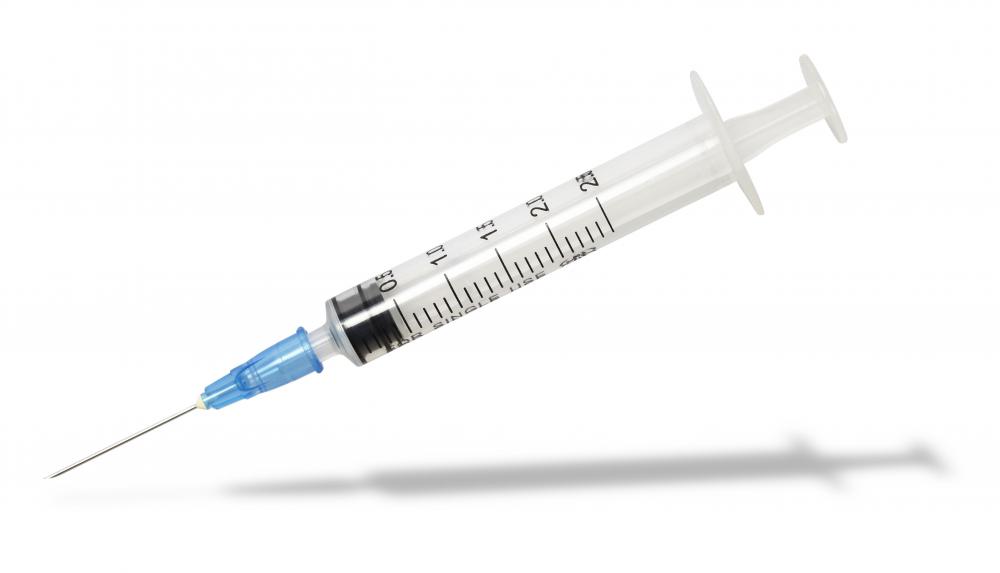At WiseGEEK, we're committed to delivering accurate, trustworthy information. Our expert-authored content is rigorously fact-checked and sourced from credible authorities. Discover how we uphold the highest standards in providing you with reliable knowledge.
What is Rhesus Disease?
Rhesus disease is a condition which affects an unborn baby when its mother’s immune system generates antibodies which attack the baby’s red blood cells. Pregnant women do not display any symptoms, but babies born with this disease often have anemia and jaundice. Rhesus disease was once very common in women with certain blood types, but is now relatively rare, as it can be prevented with a simple injection. This condition is also called Rh (D) disease, or hemolytic disease of the newborn.
The term Rh (D) refers to a protein called Rhesus factor D. This protein is present on the surface of red blood cells in people who are said to be Rhesus-positive. Not all people are Rhesus-positive; those who do not have the Rhesus factor D protein are said to be Rhesus-negative.

For Rh (D) disease to develop in an unborn baby, two conditions must be met. First, there is a risk of Rhesus disease developing when a woman with the Rhesus-negative blood type is pregnant with a baby who has Rhesus-positive blood. For the disease to actually develop, however, the pregnant woman must have previously been exposed to Rhesus-positive blood. This second condition must be met in order for the woman’s immune system to generate antibodies to the Rhesus-positive blood cells of the baby.

A typical scenario in which Rhesus disease develops is when a pregnant woman with the Rhesus-negative blood type has previously given birth to a baby with the Rhesus-positive blood type. In this situation, her immune system was exposed to Rhesus factor D during the first pregnancy. This initial exposure is called sensitization. In her second pregnancy, if this baby is also Rhesus-positive, the woman’s immune system will generate antibodies which attack the baby’s red blood cells. These antibodies can cross the placental barrier from mother to child and destroy fetal red blood cells.

Up until the late 1970s, Rhesus disease was a relatively common neonatal complication. In 1977, a preventative injection was introduced which stops the immune system from developing antibodies to Rhesus factor D. The injection contains antibodies which recognize Rhesus factor D, and destroy red blood cells which are Rhesus-positive. This is called anti-D immunoglobulin, and is given to all Rhesus-negative women who are pregnant.

This treatment works because it is given to a woman before her own immune system develops Rhesus factor D antibodies, at around 28 weeks of pregnancy. A Rhesus-negative woman receives this injection each time she is pregnant, ensuring that her immune system never becomes sensitized to produce destructive antibodies.
AS FEATURED ON:
AS FEATURED ON:














Discussion Comments
I had Rh disease at birth in 1969. It would be very interesting to see any long-term studies of what happened to the babies who survived. However, I think we've been written off. They can prevent it now and widely do. Most of the afflicted babies either had very mild cases or died, so I think there is minimal interest in this among the medical community. I wish there was some way to find useful information about the long-term effects.
I'm Rh neg. and had several injections of Rhogam. I have been suffering with some undiagnosed autoimmune disease and would very much like to see this studied. My son has also had similar health problems.
There are studies being done. Medicine isn't a magic lamp you can just rub and get all the answers to our problems. It takes time, sometimes much more time than people have left to live. Some people die because we don't have all of the answers yet. It's a hard concept, and a little bit scary to think about. Unfortunately that is the nature of life.
Even in this day and age, we sometimes have to concede to do the best with what we have and just try to be happy with it all. The alternative is to be miserable, and let reality bring us down. Which, if you think about it for a moment, is an utterly ridiculous thing to do! If you need the world to change, if you want to understand or help the world understand the long term effects of the RH injection then do something about it! Don't wait for someone to hand it to you, because by then it just may be too late.
If you need it to happen. go out and make it happen, or at least do your best to see it through.
I was given a blood transfusion at birth because of the rh factor. I was diagnosed with RA about 6 years ago, Now the doctor is saying it's sero negative which is not RA but an autoimmune problem. I am anemic also. I wonder if these problems are related to the RH factor.
I agree. I am Rh negative, with A negative blood and am 50 years old. I had three children. My first had an injection as did I. For my other two, I did not, nor did they, but I have multiple problems. I am disabled but doctors can't find a solution or a problem. There's just a lot wrong with me. Could it be from the injections?
Someone needs to do long term studies on this babies that now live to adulthood where before they would either abort or die at birth.
My mother was Rh negative. All her pregnancies were high risk. This was before Rhogam. All my siblings had blood transfusions. I am the firstborn. Two of my brothers had Rheumatoid Arthritis, and one has already died. My sister has had heart trouble since she was a young adult. Another brother was diagnosed with Hodgkin's disease. Why is nobody studying long term factors just because these babies survive?
Post your comments